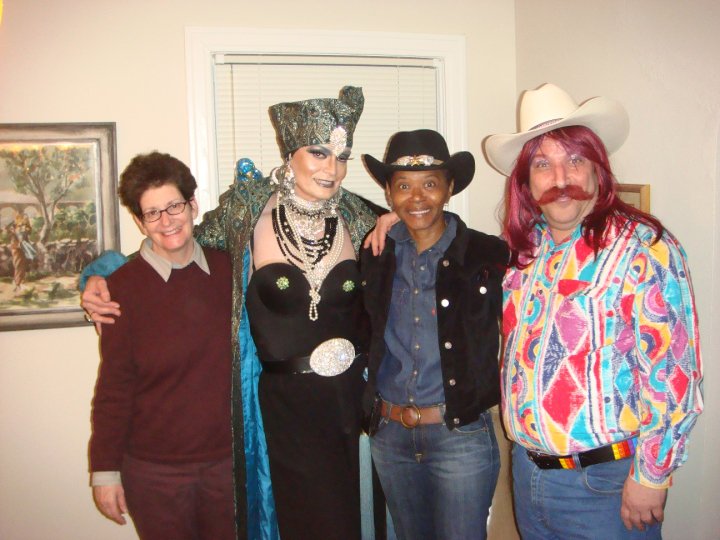Gayest of Jewish holidays combines Christmas and Halloween in retelling the story of Queen Esther
DAVID TAFFET | Staff Writer
taffet@dallasvoice.com
The Jewish holiday Purim, which celebrates Queen Esther saving the Jews in Persia, is a minor holiday, but it’s still many people’s favorite. Purim is also the gayest of Jewish holidays. Cantor Sherri Allen of Congregation Beth El in Arlington said the holiday celebrates coming out. The holiday recounts the spiel — or story — told in the biblical book of Esther:
When beautiful Queen Vashti refused to display her beauty to King Achashverus’ guests, the king banished her and decided to find a new queen. He ordered all the country’s hottest young women to be presented to him so he could choose — sort of Cinderella meets American Idol. He chose Esther as his new queen.
Haman, the king’s advisor, is the bad guy in the story. When Mordechai refused to bow down to Haman and Haman found out that Mordechai was Jewish, Haman convinced the king to kill all the Jews.
The name Purim means “lots.” The king drew “pur” to decide that 13 Adar (which falls on March 20 this year) would be the day the Jews would be killed. The Jews wore sackcloth and ashes and fasted for three days.
Here’s where the story takes its turn that teaches a lesson in coming out to the LGBT community, according to Allen; Esther, who had become Achashverus’ favorite wife, decided to come out, telling her hubby that if he killed the Jews, he’d have to kill her too, because she was Jewish and Mordechai was her uncle.
Well this little turn of events really made Achashverus mad, and he decided to spare the Jews and hung Haman instead. So the story follows the traditional pattern of Jewish celebrations — they tried to kill us, God saved us, let’s eat.
Lots of intrigue. Lots of pathos. A coming out story and sex — implied is that the straight king wants it badly. The holiday is celebrated with parties, gift-giving and acting out the book of Esther, usually with songs — sort of Jewish Halloween, Christmas and Broadway musical all rolled into one. And yes, traditionally, Purim is the Jewish gift-giving holiday, not Chanukah.
To celebrate, everyone dresses as a favorite Purim character, although no one dresses as Haman. That is considered as religiously distasteful as dressing as Hitler. It is perfectly appropriate, however, for lots of guys to go in drag as Esther or Vashti. Every time Haman’s name is mentioned, everyone drowns it out with noisemakers, adding in a little New Year’s Eve party as well.
The “let’s eat” part of the holiday includes several foods. Hamantaschen are pastry whose German name means Haman’s hats. Each hamantasch is triangular and looks like a three-cornered hat. The tart is filled with fruit or cream cheese.
Kreplach is another Purim food. Unlike Bette Midler’s definition (people from the small Baltic country of Kreplachia), kreplach are actually dumplings — triangular dough filled with chopped meat and boiled in a chicken soup.
Some historians believe Achashverus was King Xerxes who ruled 485–465 B.C.
The exile from Jerusalem to Babylonia that is mentioned in the book of Esther took place in 597 B.C. Mordechai is referred to as having been exiled, so he would have to be more than 100 years old when the story took place.
Because of the discrepancy, many scholars believe the story of Esther was actually a historical novella, a popular writing style at the time. Written about 300 B.C., the book may have been created to explain the celebration of the holiday.
And like other biblical stories, the book of Esther has been tackled by Hollywood, but this one wasn’t a Cecil B. deMille spectacular.
Following the gay camp theme of the holiday, the 1960 film Esther and the King starred Joan Collins as Queen Esther. Perfect.
Congregation Beth El Binah celebrates Purim on Saturday, March 19 at 7 p.m. with a potluck dinner and costume party at a private residence. Everyone welcome. Contact diane@bethelbinah.org for details.
This article appeared in the Dallas Voice print edition March 18, 2011.

















Wow…Real face of devils